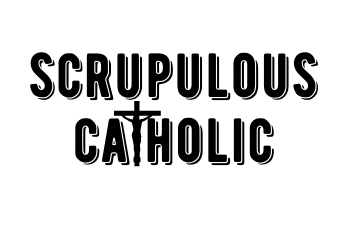Marriage is one of the Catholic Church’s Sacraments. It is a sacred bond that is a lifelong commitment. However, as there is no perfect human relationship, there may be instances where divorce becomes a consideration. If you’re a Catholic in this situation, you may be wondering, “Can Catholics divorce?” In this blog post, we will delve into that question topic., answering it in a comprehensive manner.
The Sacrament of Matrimony
Before going into the details, let’s first discuss the basic teachings of the Catholic Church regarding marriage.
According to the Catechism,
CCC 1601 The matrimonial covenant, by which a man and a woman establish between themselves a partnership of the whole of life, is by its nature ordered toward the good of the spouses and the procreation and education of offspring; this covenant between baptized persons has been raised by Christ the Lord to the dignity of a sacrament.
Marriage is a Sacrament, a sacred union between a man and a woman, blessed by God.
It is not just a legal contract but a covenant between two people and with God.
A vocation, marriage requires a deep commitment to building a strong, loving relationship with one’s spouse. Catholic marriages are meant to reflect the love and unity between Christ and His Church, a bond that is unbreakable.
Divorce
Divorce is an act to dissolve a valid marriage.
CCC 2384 Divorce is a grave offense against the natural law. It claims to break the contract, to which the spouses freely consented, to live with each other till death. Divorce does injury to the covenant of salvation, of which sacramental marriage is the sign. Contracting a new union, even if it is recognized by civil law, adds to the gravity of the rupture: the remarried spouse is then in a situation of public and permanent adultery: If a husband, separated from his wife, approaches another woman, he is an adulterer because he makes that woman commit adultery, and the woman who lives with him is an adulteress, because she has drawn another’s husband to herself.
According to the statement above, it is clear that the Catholic Church is against divorce.
Annulment
The Catholic Church only allows annulment.
Here, nothing is made void and null, the Catholic Church tribunal declares a marriage lacks at least one of these elements thus making it not binding:
- The spouses have the freedom to enter into matrimony.
- They possess the ability to provide their consent for the union.
- They willingly share their vows of consent.
- When consenting to marriage, they express their commitment to a lifelong partnership, faithfulness, and a willingness to have and raise children.
- They harbor the intention of promoting each other’s well-being.
- Their consent is affirmed in the presence of two witnesses and an appropriately authorized Church minister. Exceptions to the final stipulation must receive approval from Church authorities.
The annulment process is not as easy as one can think. It requires a great deal of reflection and introspection. It involves seeking guidance from a priest or other Church official and going through an investigation to determine whether the marriage is indeed invalid. Grounds for annulment may include situations such as fraud, coercion, or the inability to give full consent.
It is also worth noting that an annulment differs from a civil divorce in that the latter ends the legal marriage, whereas an annulment declares the marriage never existed in the eyes of the Church.
Catholics Church on Divorce
Now, let’s answer the answer the question.
Can Catholics Divorce?
No, the Catholic Church does not recognize divorce as it believes in the unbreakable bond of the Sacrament of Matrimony. it views the marriage as sacred and requires a lifelong commitment. However, the Church allows annulment, which is a declaration that the marriage was invalid from the very beginning.
That said, note that divorced Catholics are still members of the Church and are welcome to participate in the Sacraments, such as the Holy Communion as long as they don’t enter into another sexual relationship with others as this is considered adultery. In addition, remarriage without obtaining annulment is not permitted in the Church.
Support
The Catholic Church recognizes that not all marriages can or should be saved, and the Church seeks to support those who have been through divorce. It offers pastoral care and counseling to those who have been through the annulment process and encourages those who have experienced divorce to continue their journey of faith.
It is also helpful to ask for guidance and support from your fellow Catholics and the Church community. Many parishes offer support groups going through divorce.
As one navigates life after divorce, it is essential to maintain your Catholic values and beliefs. Just seek forgiveness, show compassion towards yourself and others, and strive to live a life guided by the teachings of Jesus Christ through the Church.
Conclusion
Being in a relationship that is falling apart does not necessarily mean that you just give up and leave. Marriage is more than a contract. It requires patience, understanding, and humility between partners so that they may able to live the true meaning of their marital vows. As Catholics, it is our duty to keep the marriage as holy as possible by proper communication.
That couples keep the promises they made at the Sacrament of Matrimony, Loving Mother, pray for us.

